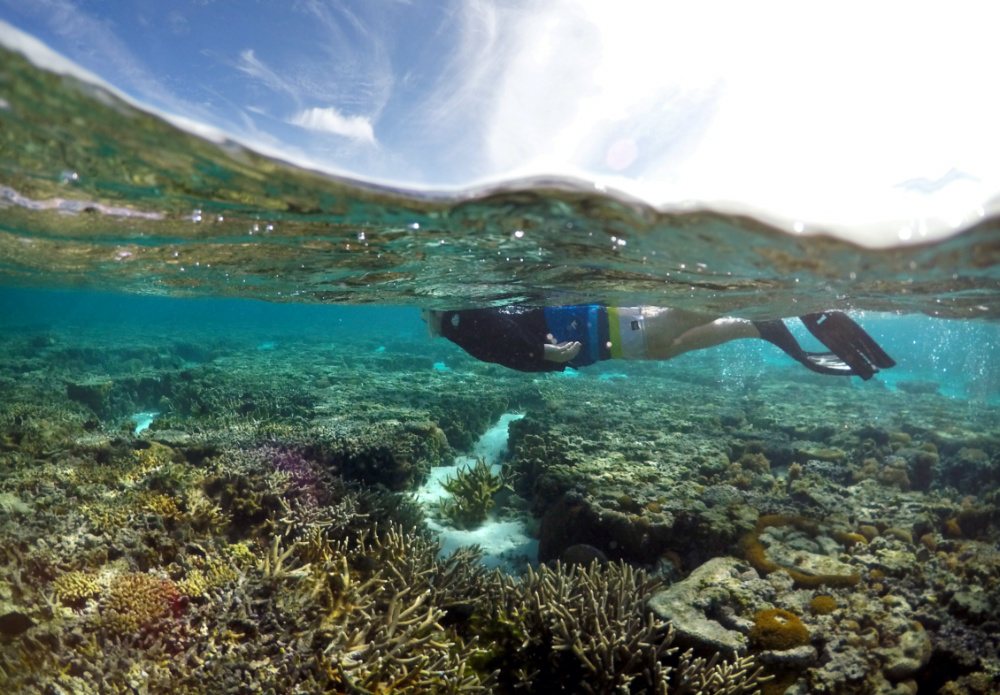Sydney, Australia
Reuters
Australia’s Great Barrier Reef has lost more than half its coral in the last three decades and scientists fear the loss caused by frequent bleaching will compromise its ability to recover.
Record-breaking temperatures that triggered bleaching events in 2016 and 2017 have meant fewer small, baby corals and breeding adult ones, said Terry Hughes, professor at ARC Centre of Excellence for Coral Reef Studies at James Cook University.

A tourist snorkels above coral in the lagoon located on Lady Elliot Island on the Great Barrier Reef, 80 kilometres north-east from the town of Bundaberg in Queensland, Australia, on 9th June, 2015. PICTURE: Reuters/David Gray/File photo
“That means the resilience of the reef, its ability to bounce back from recurrent mass bleaching events, has been compromised,” said Hughes.
“We used to think the Great Barrier Reef is protected by its sheer size, but our results show that even the world’s largest and relatively well-protected reef system is increasingly compromised and in decline.”
Bleaching early this year could have caused more damage to the reef’s southern region, Hughes said. The reef suffered its most extensive bleaching event in March, the third one in five years.
The Great Barrier Reef runs 2,300 kilometres down Australia’s northeast coast spanning an area half the size of Texas. It was world heritage listed in 1981 by UNESCO as the most extensive and spectacular coral reef ecosystem on the planet.






